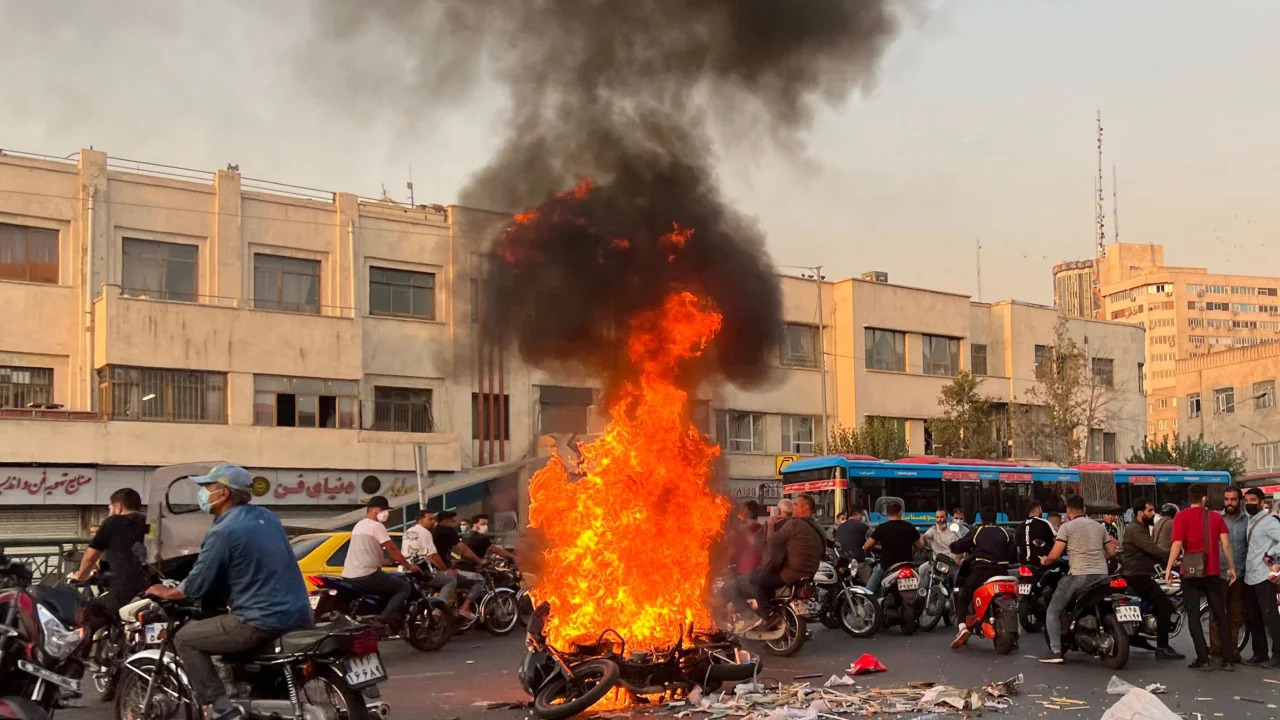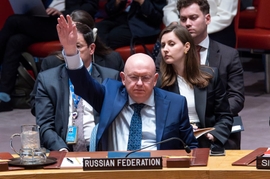Iran discovered and neutralized 400 explosive devices, since the start of the mass protest triggered by the death of Mahsa Amini in September 2022, Intelligence Minister Esmail Khatib said in a recent interview.
“We receive many reports saying that they (the enemies) are trying to take advantage of another (wave of) fabricated riots. During this time, we collected about 400 bombs, including more than 40 which were supposed to set off in mourning congregations of the first 10 days of (the lunar calendar month of) Muharram (28 July - 10 August),” Khatib said during an Iranian TV program on September 10, according to Press TV.
He said that prior to the riots, the sworn enemies of the Islamic establishment, including separatists, terrorists, and pro-Shah elements, held meetings with over 50 intelligence agencies in different countries and trained 200 media outlets to provoke the riots.
The minister said that the budget allocated to the 50 intelligence services that are operating against the Islamic Republic is more than Iran’s annual budget, and added that the main intelligence services acting against Iran are those of Britain, Israel, and the United States, which coordinate and direct the activities of other agencies.
He went on to say that the anti-Iran intelligence services have set up a weapons factory near Iran’s border with its products being smuggled into the country.
On September 9, Commander of Islamic Revolutionary Guard Corps (IRGC) Ground Forces, Brig Gen Mohammad Pakpour said that "separatist groups" and "anti-revolutionary" elements were seeking to portray the region as unsafe, in order to prevent development and investment in the south-east.
Referring to the September 6 killing of two officers in an attack on a police unit in Taftan, located in the Sunni-majority Sistan-Baluchestan province in southeastern Iran, Pakpour warned that enemies and ill-wishers want the central government to make the region a closed military zone. However, the government trusts the local leaders to maintain security.
"We have detailed information that the Americans have established meetings and communications with rebel groups that are not even related to this region of the country, and are planning (to create) insecurity in this region," he added.
On September 6, the Intelligence Ministry and the Intelligence Organisation of the IRGC said in a joint statement that they "identified and delivered a blow to several members of a group allegedly planning to "organise riots" in the country.
The intelligence agencies alleged that the network was being "financially backed" by the US State Department, "led by" US-based advocacy groups Freedom House and Nonviolent Initiative for Democracy (NID), and, "managed" by an unnamed foreign-based political activist.
On September 9, the intelligence department of the IRGC arrested “six elements involved in the riots (who) have been seeking to provoke public opinion on five cyberspace pages in order to create instability" in the Kohgilouyeh-Boyer Ahmad Province of Iran in the southwest.
A day earlier, Iran's police in the southern province of Fars arrested an individual on charges of "provoking and planning organised sabotage" last year. The Intelligence Organisation said the detained person had engaged in "riots". It also accused the individual of having connections with "hostile" media abroad and engaging in anti-establishment activities in cyberspace.
Iranian security forces have intensified surveillance and control in the run-up to the first anniversary of the death of Mahsa Amini in police custody on September 16, 2022, which led to months-long protests last year.
At least 537 people, including 68 minors, had been killed as a result of the government's intervention in the protests, between September 2022 and April 2023. An estimated 19,262 were arrested from at least 134 cities and towns and at 132 universities.







 Kyrgyzstan has joined the extensive reconstruction efforts in the Karabakh region of Azerbaijan, after a series of mega initiatives were launched b...
Kyrgyzstan has joined the extensive reconstruction efforts in the Karabakh region of Azerbaijan, after a series of mega initiatives were launched b...
 President Ilham Aliyev shed light on the evolving contours of the peace process with Armenia during an international conference in Baku this week. ...
President Ilham Aliyev shed light on the evolving contours of the peace process with Armenia during an international conference in Baku this week. ...
 Azerbaijan and Armenia started the process of demarcation of their border on Tuesday, with the installation of the first border markers based on ge...
Azerbaijan and Armenia started the process of demarcation of their border on Tuesday, with the installation of the first border markers based on ge...
 As the conflict between Ukraine and Russia escalates, the strategic importance of Kharkiv, Ukraine's second-largest city, has come sharply into focus.
As the conflict between Ukraine and Russia escalates, the strategic importance of Kharkiv, Ukraine's second-largest city, has come sharply into focus.
 Iran and Pakistan have signed eight cooperation documents in various fields, and agreed to strengthen ties to fight terrorism in the region.
Iran and Pakistan have signed eight cooperation documents in various fields, and agreed to strengthen ties to fight terrorism in the region.



